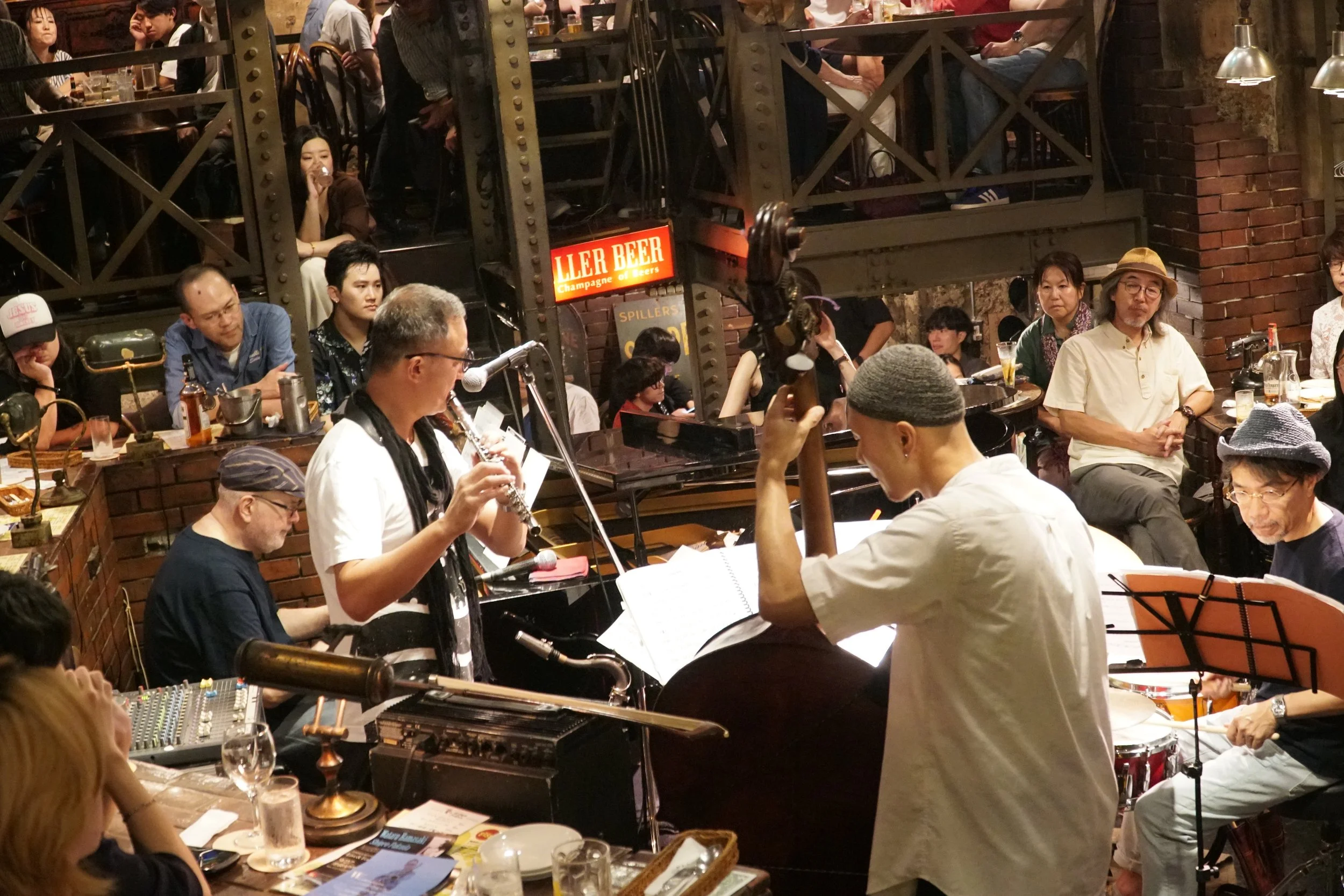David Berkman 4 Sometime
July 19, 2024 Sometime
David Berkmanデイビット・バークマン- piano
Wataru Hamasaki浜崎 航sax, flute
Ryoichi Zakota座小田 諒一(b)
Masahiko Osaka大坂昌彦(ds)
Some quartets satisfy more than others, while other quartets intrigue more than others, but Berkman’s quartet manages both. The musicians dig into standards with ease but remain thoughtful enough to tweak them to sound fully refurbished. Throw in some originals, and the David Berkman group really shines.
Take their version of “Giant Steps.” It’s often a song to show off everyone’s chops by ripping through tricky chord changes without getting lost. It’s a tune that musicians and theorists have studied since it was written by Coltrane. Every jazz musician tries it live at some point. But how many shift the time signature back and forth? Not many dare. But Berkman’s quartet put in time changes that made you lean forward to listen. Hearing Coltrane’s classic finger-buster afresh, it sounded (strange to say) jazzier, in the best sense, without being any easier to play.
Berkman has been in Tokyo for a few months, playing solo and in various groups and clearly enjoying himself immensely. “So In Love” was played more as a fun bop than a romantic ballad. “Tangled Web” was played as a samba, with great solos from Hamasaki and Osaka. Closing out the first set, one of Berkman’s originals, “Cedar Shavings,” dedicated to the great Cedar Walton, featured full-on chord changes and excellent solos from everyone. It was the most complicated kind of fun.
Kicking off the second set, “Simple Pleasures” was just that. The band was in gear and ready to play with even more nuance and attention than in the first set. There were longer drum solos, more tuneful bass solos, and more time for Hamasaki's flute, which added new textures to his already spot-on sax work.
The arrangement of Thelonius Monk’s “Pannonica” sounded like a bookend to the fresh arrangement of “Giant Steps.” Monk’s meandering melody was taken straighter and used for longer solos without losing the loping, exploratory cool of the original.
Berkman’s original, “But Not Again,” was based on the chords from the standard “But Not For Me.” Hints of the standard came through, but the song was played as its own creation, with a nimble samba list and a breezy feel.
The final number, an original dedicated to trumpeter Tom Harrell, “Blue Poles,” was a bit more intense and slightly darker. Perhaps it was an odd choice, but its new jazz feel and rollicking rhythm made it an energetic ending to the evening. It was the kind of melody, rhythm, and feel that sticks in your head on the way home.
An encore was called for, and the group jumped into a bluesy vamp way past the official stopping time, but no one seemed to mind. Rather just the opposite, everyone could have stayed for even more. I wasn’t the only one in the audience hoping Berkman would spend even more of the year in Japan.


